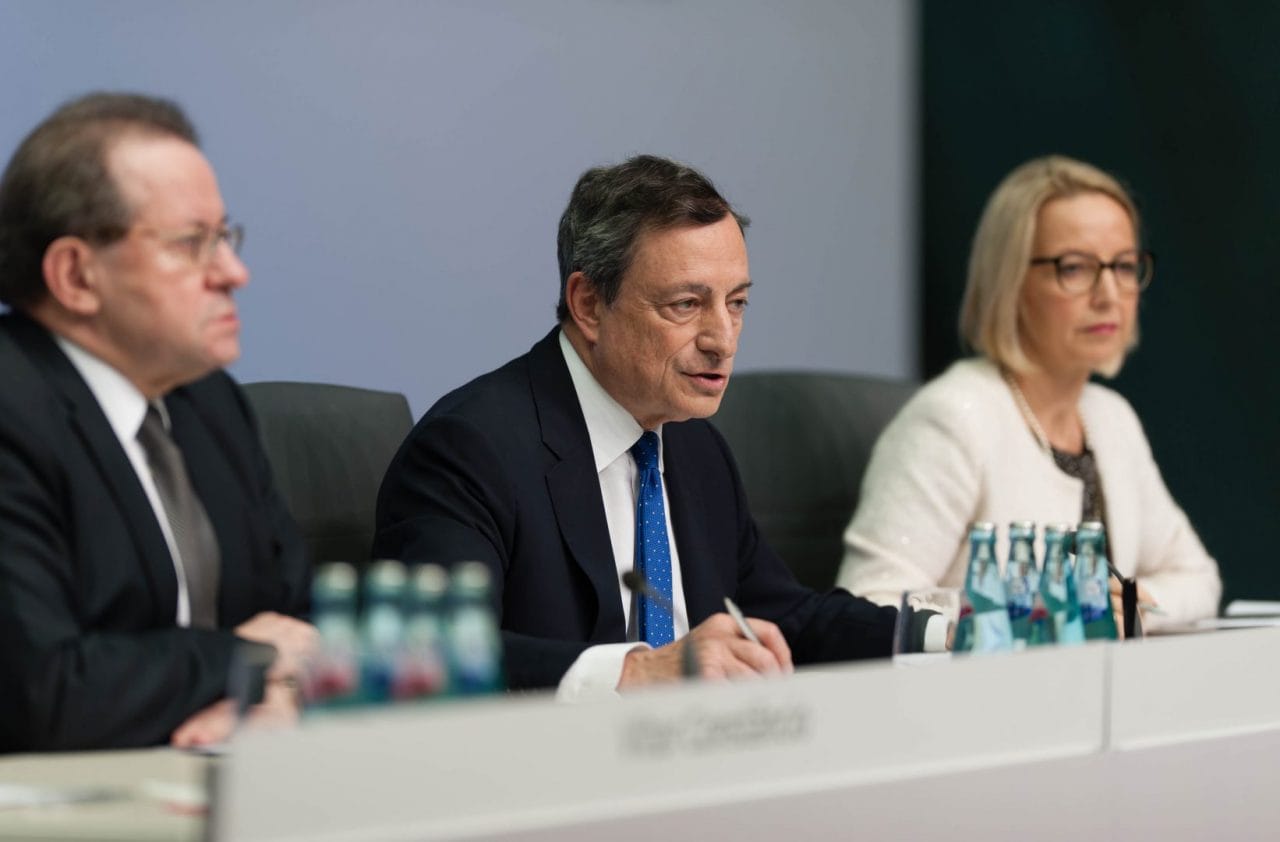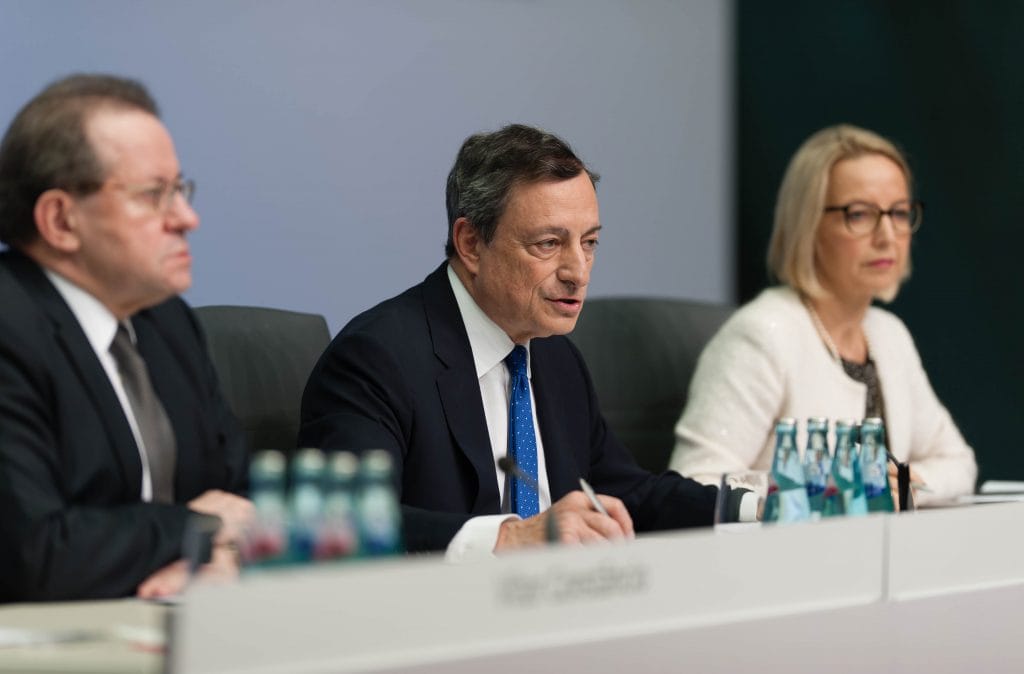
In reaction to the European Central Bank (ECB) meeting today, Timothy Graf, head of macro strategy for EMEA at State Street Global Markets; Brendan Lardner, active fixed income portfolio manager at State Street Global Advisors; and Antoine Lesné, head of EMEA strategy & research for SPDR ETFs offer their views.
In first place, Graf comments, “With a tapering of asset purchases announced at their last meeting, forecast revisions were the primary area of focus for the ECB this month. Unsurprisingly, growth estimates were revised up in light of stronger Q3 output data, but inflation remains sufficiently below target, such that no hints at a forecast shift or further policy innovation are expected for some time.
Given today’s meeting wasn’t seen as offering many fireworks, rate and FX markets will likely take the statement and ECB president, Mario Draghi’s remarks in its stride. The focus on next year becomes all the more important – if the end of quantitative easing and negative rates are to arrive, inflation needs to improve further and be sustained at a higher level than at present.”
On his side, Lardner tipped out that, “Having announced a taper of their asset purchase programme from January at their last meeting, not much news was expected from the ECB today. While Draghi noted the ongoing strength of the Euro area recovery, which is increasing the ECB’s optimism that inflation will eventually follow, caution was still expressed about the low underlying level of inflation and hence the need for continued policy support.

Although Mr Lardner thinks that this is supported by the relatively strong growth forecasts released today while the inflation forecasts, while improved in 2018, still show no sign of a meaningful pick up, with the new forecast for 2020 inflation coming in at 1.7%. The ECB’s confidence is rising, but not sufficiently yet to announce any changes to the purchase programme. We wouldn’t expect significant market reaction to today’s announcements.”
Indeed, Lesné completed his colleagues point of view, “as the ECB ends its last month of asset purchases for €60 billion, and January will see the first reduction to €30 billion, most of the policy signals were already telegraphed.
“Instead the ECB focused on upside news coming from the data while potentially revising the forecasts for the new year on the back of strong output data. Meanwhile inflation remains stubbornly low and this will weigh on any willingness to normalise or tighten policy too quickly. Nevertheless euro government bonds had rallied in the week leading to the meeting and the curve had flattened too.
“Navigating the euro curve in 2018 will be more challenging and the risk return profile of euro sovereigns is challenging should normalisation of conditions happen more quickly than currently anticipated. Inflation developments hold the key but wage inflation will be slow coming in the Eurozone as an aggregate. The fact that there is no real tweak to today’s ECB message may support euro bonds for the moment and the risk markets as a whole.”
Read More:
business development manager skills
how to get personal loans with income verification?
Tradersdna is a leading digital and social media platform for traders and investors. Tradersdna offers premiere resources for trading and investing education, digital resources for personal finance, market analysis and free trading guides. More about TradersDNA Features: What Does It Take to Become an Aggressive Trader? | Everything You Need to Know About White Label Trading Software | Advantages of Automated Forex Trading









